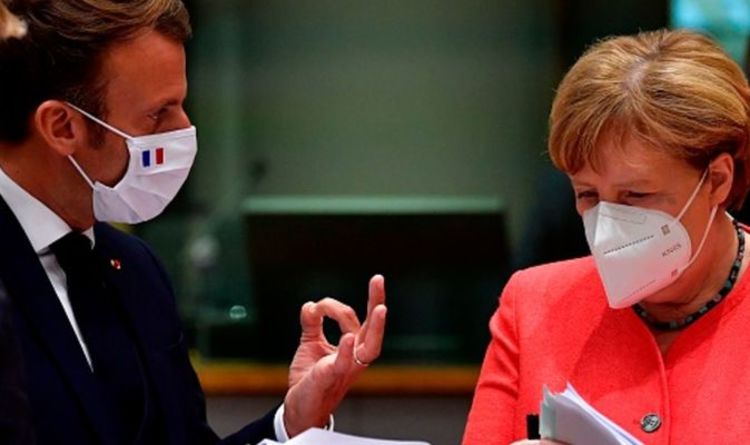The German Chancellor warned its citizens on Friday not to make unnecessary trips to neighbouring France, Austria, Denmark and the Czech Republic because of rising COVID-19 infection rates. The move also means people coming into Germany from those countries will have to provide a negative test not older than 48 hours at the border, the Robert Koch Institute for disease control said.
They will then have to go into a ten-day quarantine which can be shortened after a second negative test after five days, it added.
France’s European Affairs Minister Clement Beaune said cross-border workers living in eastern France and travelling into Germany every day would be required to take two COVID-19 tests per week.
Tens of thousands of French residents traverse the frontier each day for work.
The move is likely to spark chaos between France and Germany as the two nations are already negotiating ways to come to an agreement.
Mr Beaune told French TV CNEWS on Friday evening: “I am negotiating with Germany to mitigate the consequences at the borders”
Germany also plans to make it mandatory for everyone flying into its territory to show a negative test before boarding the plane, even if they are not travelling from countries designated as high risk.
Last month, Emmanuel Macron announced new restrictions at its border with Germany in a blow to Angela Merkel after the Chancellor’s repeated threats to seal off the country.
The French President brought in new COVID-19 restrictions for the Moselle area at its border with Germany.
READ MORE: Macron and Merkel’s ‘contradicting’ claims sparks vaccine doubt
French Prime Minister Jean Castex has already warned the country is bracing for a third wave of coronavirus infections following a huge spike in numbers over recent days.
In the Paris region, in northern France and on the Cote d’Azur, a lockdown has been imposed that has forced most shops to once again close.
There is also a nightly curfew in place between 7pm and 6am across the country.
In Germany, Ms Merkel has been warned she could face a vote of no confidence in the Bundestag after she was forced to make a humiliating U-turn on coronavirus restriction policies announced just 24 hours earlier.
Earlier on Wednesday, the Chancellor admitted it was a “mistake” to announce new lockdown restrictions for a period of five days over the Easter break.
Ms Merkel and the leaders of Germany’s 16 states called on citizens to stay at home for five days over the Easter holidays, declaring April 1 and April 3 as extra “rest days”.
The measure would have meant all stores, including essential ones, closing for an extra day.
She said: “The idea of an Easter shutdown was drafted with the best of intentions. We urgently need to stop and reverse the third wave of the pandemic.”
But it was not possible to implement the hastily agreed measures so quickly.
Ms Merkel admitted: “This mistake is mine alone.”




